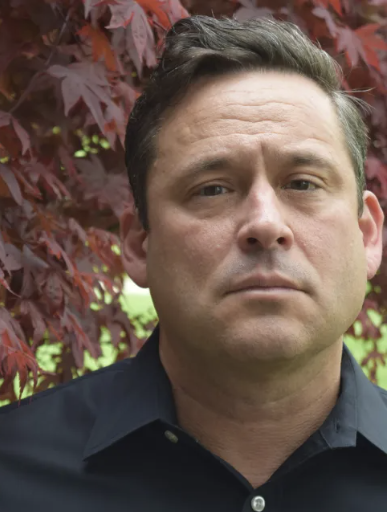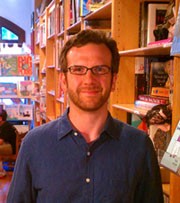People
Directors

Michael Witgen
Michael Witgen is a professor in the Department of History and the Center for the Study of Ethnicity and Race at Columbia University, and he is a citizen of the Red Cliff Band of Lake Superior Ojibwe. He specializes in Indigenous and Early North American history, comparative borderlands, and the history of the early American Republic. His publications include “An Infinity of Nations: How the Native New World Shaped Early North America, (Philadelphia: University of Pennsylvania Press, 2012), and “American Indians in World History,” in the Oxford Handbook of American Indian History, ed., Fred Hoxie, (Cambridge: Oxford University Press, April 2016). His current research examines the intersection of race, national identity, and state making in the Old Northwest of the early republic, and includes the essay “Seeing Red: Race, Citizenship, and Indigeneity in the Old Northwest,” published in Journal of the Early Republic in 2018, and Seeing Red: Indigenous Land, American Expansion, and the Political Economy of Plunder in North America with the press of the Omohundro Institute for the Study of Early American History and Culture.
Associate Director

Thai Jones
Thai Jones studies radical social movements, New York City history, and Environmental History in the United States. He is the author of three books, including More Powerful Than Dynamite: Radicals, Plutocrats, Progressives, and New York's Year of Anarchy (Bloomsbury, 2014 [2012]), which rediscovered a forgotten political crisis that roiled New York City in the early twentieth century. His first book, A Radical Line: From the Labor Movement to the Weather Underground, One Family's Century of Conscience (Free Press, 2004), explored his own family’s long history of political dissent against the backdrop of twentieth century social movements. He is currently working on Boomtown, a history of labor and the environment in Progressive Era gold-mining communities. Before becoming Lehman Curator, Jones was an assistant professor of history at the Bard College Master of Arts in Teaching Program. Formerly a reporter for Newsday, his writings have appeared in a variety of national publications, including the New Yorker, the Washington Post, the New York Times, The Nation, and the Occupied Wall Street Journal.
Coordinator
Vayne Ong
Vayne Ong is a doctoral student of United States history. She is broadly interested in the histories of the carceral state, leisure, and urban social life. She focuses on how racially minoritized New Yorkers encountered policing, incarceration, and postwar urbanization in the 20th century. She has researched race and rebellion, community activism, municipal politics, and the welfare state. Prior to Columbia, Vayne received her B.A. from Princeton University in history with honors and a minor in urban studies. She also has prior work experience in youth and adult political education, civic engagement, and employment law.
At the Lehman Center, Vayne researches and works on curatorial projects, assists in convening the Public History Workshop, arranges public speakers and book talks, and assists with processing archival material.
Past Directors
Frank A. Guridy
Frank A. Guridy specializes in sport history, urban history, and the history of American social movements. His recent book, The Sports Revolution: How Texas Changed the Culture of American Athletics (University of Texas Press, 2021) explores how Texas-based sports entrepreneurs and athletes from marginalized backgrounds transformed American sporting culture during the 1960s and 1970s, the highpoint of the Black Freedom and Second-Wave feminist movements. His first book, Forging Diaspora: Afro-Cubans and African Americans in a World of Empire and Jim Crow (University of North Carolina Press, 2010), won the Elsa Goveia Book Prize from the Association of Caribbean Historians and the Wesley-Logan Book Prize, conferred by the American Historical Association. He is also the co-editor of Beyond el Barrio: Everyday Life in Latino/a America (NYU Press, 2010), with Gina Pérez and Adrian Burgos, Jr. His articles have appeared in Kalfou, Radical History Review, Caribbean Studies, Social Text, and Cuban Studies. His fellowships and awards include the Scholar in Residence Fellowship at the Schomburg Center for Research in Black Culture and the Ray A. Billington Professorship in American History at Occidental College and the Huntington Library. He is also an award-winning teacher, receiving the Regents’ Outstanding Teaching Award from the University of Texas at Austin, and, more recently, the Mark Van Doren Award for Teaching at Columbia. His current book project, Between Conflict and Community: The Stadium in American Life, tells the story of the American stadium as a community institution that has been a battleground for social justice since its inception.
Stephanie McCurry
Stephanie McCurry, Professor of History, specializes in the American Civil War and Reconstruction, the nineteenth century United States, the American South, and the history of women and gender. Current work focuses on the epic human drama of Reconstruction in the U.S. and the comparative history of postwar societies and processes of reconstruction in the 19th and 20th centuries.
Expert in Civil War and Reconstruction and available for journalists on related issues, including Confederate Monuments and memory, Proslavery ideas and Slavery and its Legacy in U.S.
To read an excerpt of Professor McCurry's newest book Women's War: Fighting and Surviving the American Civil War (2019), please visit this link.
For a video of a recent lecture, please see this link.
To visit her website, please see this link.
Samuel K. Roberts
Samuel Kelton Roberts, PhD, is Associate Professor of History, Sociomedical Sciences, and African-American and African Diaspora Studies, and is also a former Director of Columbia University’s Institute for Research in African American Studies (IRAAS). Dr. Roberts writes, teaches, and lectures widely on African-American urban history, especially medicine, public health, and science and technology. His widely acclaimed book, Infectious Fear: Politics, Disease, and the Health Effects of Segregation (University of North Carolina Press, 2009), is an exploration of the political economy of race and the modern American public health state between the late nineteenth century and the mid-twentieth century, a period which encompasses the overlapping and mutually-informed eras of Jim Crow segregation and modern American public health practice.
Roberts currently is researching and writing a book-length project on the United States’s troubled history of race and recovery, examining the social and political history of heroin addiction treatment from the 1950s to the early 1990s. This project traces urban policy at the beginning of the postwar heroin epidemic, the emergence of therapeutic communities, the politics of state-run addiction rehabilitation facilities, the racial politics of methadone maintenance treatment in the 1960s and 1970s, the emergence of “radical recovery” movements, and harm reduction and syringe exchange in the 1980s and 1990s.
In 2013-14, Dr. Roberts was the Policy Director of Columbia University’s newly inaugurated Justice Initiative (now the Columbia University Center for Justice) and was the editor of the Center’s first research publication Aging in Prison: Reducing Elder Incarceration and Promoting Public Safety (2015). At the Columbia University Center for Science and Society, he leads the Research Cluster for the Historical Study of Race, Inequality, and Health. He also is the co-editor of Columbia University Press’s book series in Race, Inequality, and Health. In 2018, Dr. Roberts launched the podcast series People Doing Interesting Stuff (PDIS) (available on iTunes and other podcasting platforms) in which he speaks with people working in public health and social justice, especially harm reduction, HIV/AIDS work, reproductive justice, and criminal justice reform. He is also the co-host of the podcast limited series, Black Lives: In the Era of COVID-19.
He tweets from @SamuelKRoberts (https://twitter.com/SamuelKRoberts).
Hilary Hallett
Hilary Hallett teaches broadly about the cultural politics of the United States from the antebellum period through 1968. Her research focuses on women’s history, comparative feminisms, and the relationship between popular culture and changes in gender and sexuality in a transatlantic perspective. She is the author of Go West, Young Women! The Rise of Early Hollywood (University of California Press, 2013). She is currently completing The Siren Within: Elinor Glyn and the Invention of Glamour, which explores the transatlantic networks that supported the success of the British ‘sex novelist’ and early Hollywood personality, Elinor Glyn (under contract with Liveright-Norton).